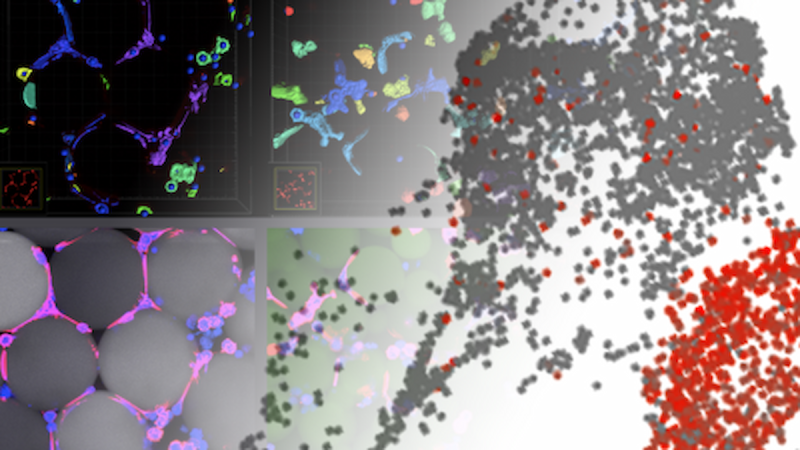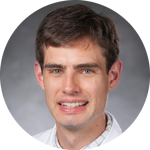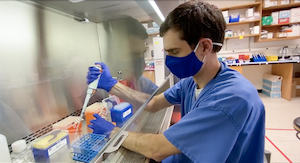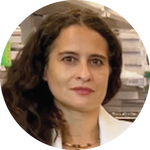
Duke Surgery and the R38: Investing in Surgeon-Scientist Trainees

General Surgery Resident
At Duke Surgery, residents in several training programs have the opportunity to complete a period of dedicated research separate from their clinical duties. Many residents complete a one-to-two-year translational science research fellowship with protected time to pursue scholarly work related to surgery, medicine, public health, or engineering. However, what happens when two years is not enough, and residents seek more opportunities to ensure their research is fruitful?
This was the case for General Surgery residents Holly Lewis, MD, PhD, and Brian Shaw, MD. They have ongoing research projects and sought to continue their basic science work when transitioning back to full-time clinical roles. Such an opportunity arose when they were awarded funds through the Duke Science Clinician Investigator - Stimulating Access to Research in Residency (SCI-StARR) pathway, also known as the R38 mechanism.

General Surgery Resident
“For someone who has been fascinated by immunology for many years, it’s great to learn about cutting-edge technologies in the department of biomedical engineering,” says Dr. Lewis. “It’s exciting that our research may have translational application in the very near future.”
What is the R38 Mechanism?

performing experiments on T cells during his time
in the Kirk Lab. | Photo credit: Samuel Kesseli, MD
Through the R38 grants awarded by the National Heart, Lung, and Blood Institute (NHLBI) and the National Institute of Allergy and Infectious Disease (NIAID), residents in internal medicine, pediatrics, and surgery can apply to the Duke SCI-StARR program for funding and mentorship to support their continuing research interests.
Each selected trainee is supported for 18–24 months by a network of multi-departmental faculty, allowing for a wide exploration of health science topics. As longstanding advocates of developing surgeon-scientists, it's no surprise that Duke Surgery often has multiple residents receive funding through the R38 mechanism. In 2020, three residents, Drs. Brian Shaw, Muath Bishawi, and Hope Weissler, were simultaneously named as grantees.
For Duke general surgery residents, research training is already integrated alongside their clinical education, but the R38 mechanism is an NIH-funded program that allows for longitudinal engagement while completing clinical residencies.
Dr. Lewis is currently in the protected research phase of her training, while Dr. Shaw is now completing clinical training and preparing to apply for a fellowship in abdominal transplantation.
“I’m interested in pursuing a career as a physician-scientist,” says Dr. Shaw. “This award would allow me to continue my research once I went back to clinical training and help provide a pathway toward a faculty position.”
After their lab time, some residents may be able to continue with their research but do so only to a limited capacity. For surgery residents who want to maintain research during their final years in clinical training, the R38 program provides them with the necessary mentorship, funding, and personnel to keep their research active.
More than Funding

Vice Dean of the Section
of Surgical Disciplines
The Department of Surgery strives to ensure that every resident who wants to pursue research can obtain funding in some way, but the R38 mechanism provides additional support. Mentorship is key in the program, where each resident assembles a diverse team of faculty known as their Scholarship Oversight Committee.
Over the course of the two-year research period, residents meet with members from the departments of medicine, surgery, pediatrics, obstetrics & gynecology, and pathology to attend seminars and luncheons, though the program has become more virtual in recent years.
Dr. Shaw was in the lab during the summer of 2020, working with transplant immunologist and transplant surgeon Allan D. Kirk, MD, PhD, Chair of the Department of Surgery. Together Drs. Kirk and Shaw study the role of T cell immunology in solid organ transplantation.
“Overall, we are interested in understanding how to teach or manipulate the immune system to distinguish friend from foe, with the goal of preventing rejection of solid organ transplants,” explains Dr. Shaw.

Professor of Biomedical
Engineering
Dr. Lewis collaborates with basic scientist Tatiana Segura, PhD, Professor of Biomedical Engineering, as her research mentor. Both Drs. Lewis and Segura work in the Segura Laboratory at Duke’s Pratt School of Engineering, developing a microporous annealed particle (MAP) gel, a biomaterial that improves tissue regeneration in ischemic brain tissues and can induce skin healing in mouse wounds. Since Dr. Lewis’ work bridges reconstructive surgery with transplant immunology, Dr. Kirk also acts as an advisor in her R38 committee.
“I am intrigued by the mechanisms of skin grafting and how we can apply our lab’s MAP scaffold to investigate immune tolerance and regenerative biology,” explains Dr. Lewis. “MAP scaffolds induce blood and lymphatic formation in healing tissues, both of which are critical processes in reconstructive and transplant surgery.”

As a next step in their research, Drs. Lewis and Segura are now looking to extend their skin graft tolerance research into animal models of limb transplant. For this work, they are teaming up with Linda Cendales, MD, Associate Professor of Surgery in the Divisions of Plastic and Reconstructive Surgery and of Hand Surgery, who also directs the Duke Vascularized Composite Allotransplantation Program.
Another benefit of the R38 program is the Research Technician Support award. This supplementary program provides funding for a research assistant to continue the resident’s work after they return to full-time clinical duties. Both Drs. Shaw and Lewis have received this award, in 2021 and 2022, respectively.
“The plan is that I'll be able to train a scientist to work with me so that when I do shift back to full clinical duties, that person will continue aspects of the work, allowing me to maintain a stable footing in the lab.” says Dr. Lewis.
The Bigger Picture
Both Dr. Lewis and Dr. Shaw appreciate how their research and clinical work is supported by broad teams of people across Duke Surgery and the SCI-StARR R38 program.
“As a physician-scientist, you just want the freedom to do good science and not have to worry about all the other stuff. That’s what this grant mechanism allows,” says Dr. Shaw. “We owe it to our patients to try and utilize all the tools we have so they can lead more fulfilling lives. Investing in physician-scientist research is powerful in the sense that we can answer fundamental questions about how our bodies work and at the same time translate those findings into practices that are immediately applicable.”
Related News:
“Drs. Brian Shaw, E. Hope Weissler, and Muath Bishawhi Receive R38 Award”
Duke Surgery News
Give to Duke Surgery
A gift to the Department of Surgery is a gift of knowledge, discovery, and life.